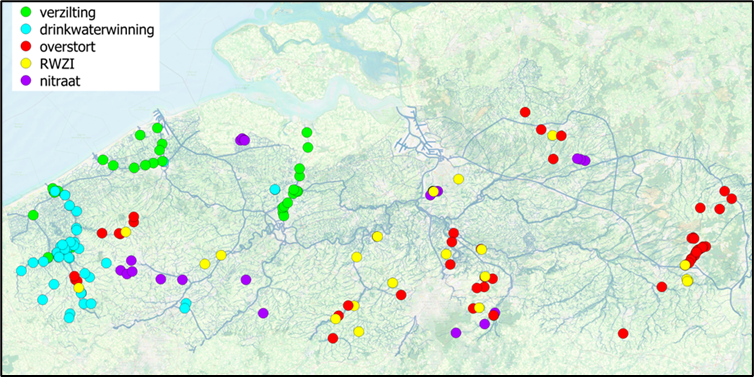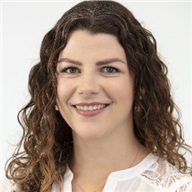For four years, the project partners of Internet of Water Flanders worked on a sensor network to measure water quality in real-time. During the closing event on 7 December 2023, they reflected on the results and new insights that are benefiting us today.
Real-time data on water quality in Flanders
300 sensors spread across Flanders continuously measure parameters for water quality in wastewater, groundwater, and surface water.
'The sensors transmit data every 15 minutes, providing a wealth of information about changes in water quality.'
Nele Desmet, lead data and sensors at VITO
The measurements contribute to models and practical applications for targeted monitoring and prediction of water quality parameters. These are already used by governments and operational entities to make informed decisions regarding the management of watercourses, water intake, discharge, and overflows.
Gaining control over water quality challenges
The better we can predict water reserves in Flanders, the smarter we can manage them. In addition to financial benefits, live data on water quality also yields gains for nature, agriculture, infrastructure, and knowledge development. Quantifiable benefits include increased raw water intake for drinking water production, time savings in data processing, avoided costs (from sampling and lab analyses), and more efficient and higher-quality decision-making.
Measuring salinity proves important for drinking water production
Marleen Spiliers, Innovation Manager at De Watergroep: "Thanks to the sensor network, we can monitor the surface water from the IJzer and surrounding waterways that we use in our water production center, De Blankaart. We observed the influence of salts from the North Sea, sluice management, and discharges from the industry. This information allows us to act promptly and make informed decisions on when to use which water source. It also encourages us to form collaborations for innovative water management to increase both quality and quantity."
'Bringing data together and working with it - innovating with it - is at the core of what we do at VLAIO. The IoW project contributes to the promise of data as a new raw material.'
Mark Andries, General Administrator VLAIO
3 key results of Internet of Water Flanders
Over the four-year project, the partners collaborated to improve sensor infrastructure, interpret data streams, and add value to practical applications. How do you manage, finance, and maintain a large sensor network? What do the sensors tell us? And how do we translate that measurement data into concrete usable insights? The three key results of the project:
- Active sensor network of 300 water quality sensors
The sensors measure water quality parameters such as temperature, conductivity, acidity, and nitrate. They are used to monitor the status and impact of salinity in coastal and harbor areas, discharges in surface water through overflows and other point sources, surface water quality for drinking water production, and nitrate concentrations in watercourses.
- Understanding the costs and benefits of the sensor network for different applications
The project provides a clear positive balance. For the application of measuring salinity for sustainable drinking water production, potential benefits are more than four times higher than the costs. These sensors continue to assist De Watergroep in producing more efficient drinking water even after the project concludes.
- Applications based on live sensor data
The project delivers a salinisation indicator app that maps the status and trend of salinity, an interpolation tool visualising the movement of salinity along a river, and an algorithm that detects overflow events.
'The research and innovation project equips Flanders with tools to become a leader in data-driven water management.'
Gert Degreef, project leader imec
The project partners also developed an IoT data platform to exchange sensor data. Broader data sharing of raw data in the public domain is offered through waterinfo.be.
Moreover, the data from Internet of Water adheres to the LDES standard, allowing it to integrate into the Vlaamse Smart Data Space, a forward-looking project by Digitaal Vlaanderen designed to facilitate the flow of data. The IoW project initiates new collaborations, for example, within the data and digitization platform of the Flemish Coordination Commission for Integrated Water Policy (CIW).
Internet of Water Flanders is a research and innovation project supported by VLAIO and executed by imec, VITO, De Watergroep, Aquafin, the Flemish Environmental Agency, and Vlakwa.





